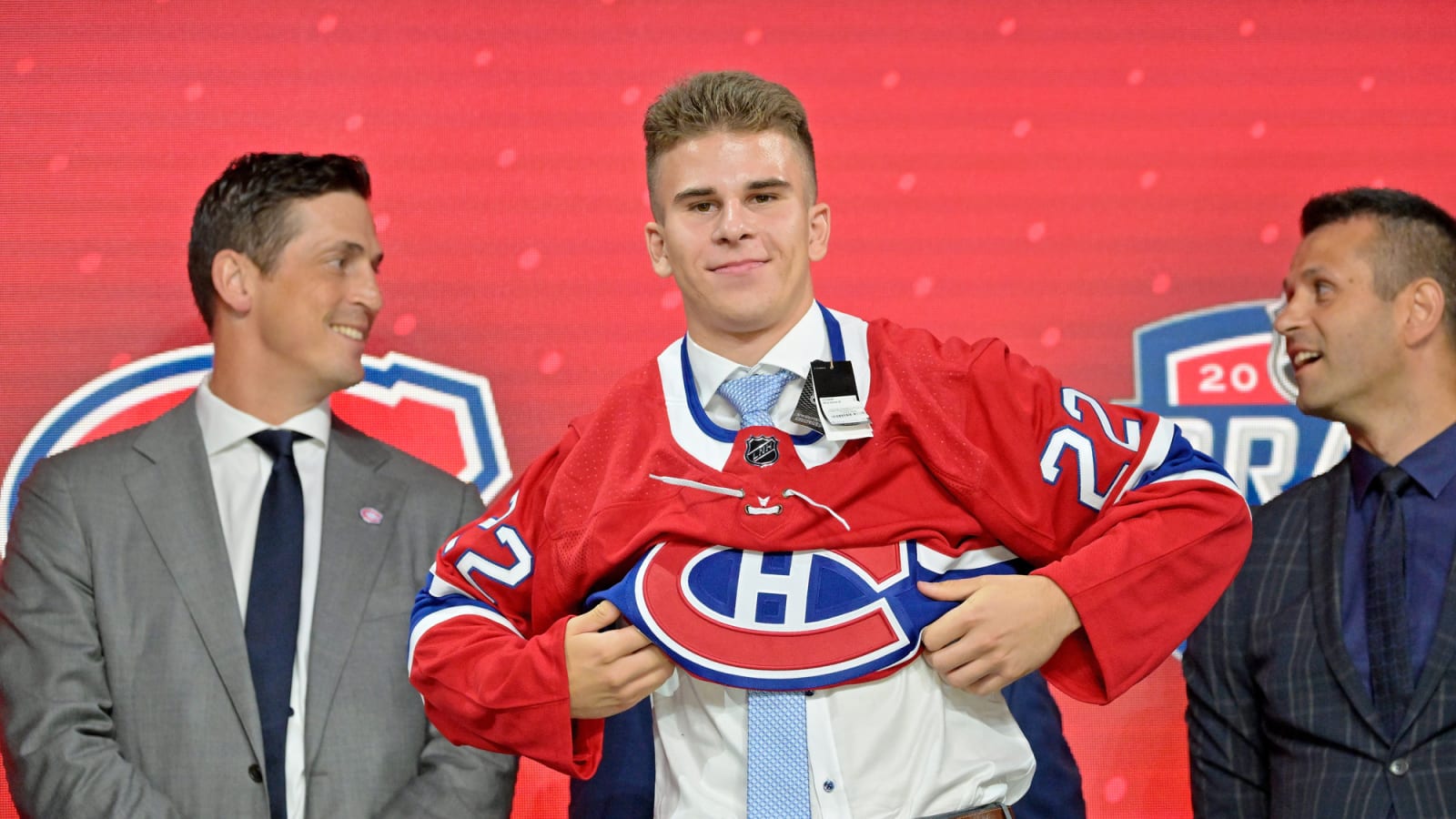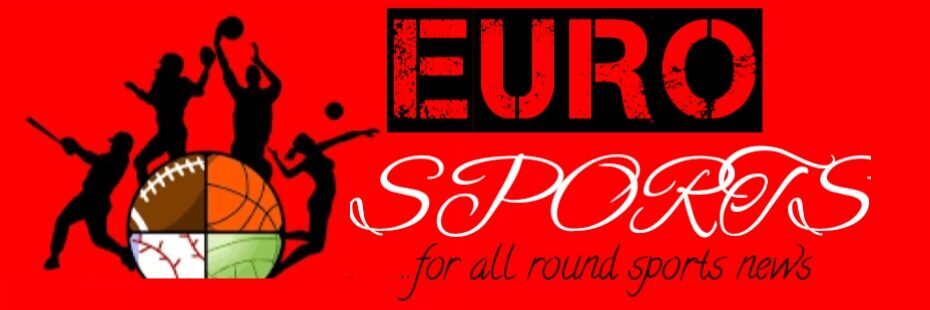It’s getting harder and harder to tell fact from fiction these days, particularly when it comes to rumors involving the Montreal Canadiens. Last Thursday, a Slovak website released a piece speculating that Habs prospect Filip Mesar had publicly rebelled against the team by declining to report to the development camp. This rumor sparked a lot of discussion.
The website further stated that he had chastised his OHL teammates, that the Canadiens no longer viewed him as a top prospect, and that the Winnipeg Jets had turned down a trade offer for disgruntled prospect Rutger McGroaty that included Mesar, a first-round pick, and either Jordan Harris or Justin Barron.
Before delving into how this rumor originated, it’s important to address the language barriers in Quebec’s sports media. Articles written in French don’t always circulate in English media, and vice versa. As a result, legitimate information can sometimes be overlooked and only resurface weeks later in another language, giving the impression that it’s new.
In this case, the rumor about Mesar’s supposed shift to the dark side gained traction after it was translated into Slovak and posted on X (formerly Twitter) with an English caption. The article’s ‘author’ claims the news comes from ‘overseas,’ which allows them to present it as a credible source while avoiding the need to verify its accuracy.
Several issues stand out in the ‘report’. Firstly, the ‘author’, who is based in Europe, claims the rumors originated from overseas, specifically North America. This implies that the information should have come from Montreal or Winnipeg. However, the Canadiens are known for not leaking information. If the trade offer details were accurate, they would have needed to come from Winnipeg and reach Bratislava before anyone in Montreal heard about it. Respectfully, if any new or true Canadiens-related information were available in Canada or the United States, the media and the millions of fans who closely follow the Canadiens would be discussing it long before it could be translated and published on a European website.
How False Canadiens Rumours Take Off
The ‘report’ immediately raised red flags. It lacked sources and attempted to portray Mesar negatively due to his reluctance to attend the development camp. While it’s possible that Mesar might have had some disagreements with Canadiens management, there’s a big difference between preferring to play in the AHL and outright rebelling against the general manager. Additionally, the trade proposal mentioned in the report was, frankly, absurd. To make things even more interesting, the report claimed that the Jets turned down this generous trade offer.
It’s important to remember that the goal of such rumor websites is to generate outrage, discussion, and even mean-spirited responses. These sites thrive on engagement, and for those without scruples, the ends justify the means.
The Slovak translation turned out to be lifted from a local junk site that consistently fabricates false Canadiens rumors without providing any evidence of their validity. I won’t link the website, as that would give them undue recognition, but suffice it to say they’re well-known in Habs circles as an outlet to ignore. This is where the language barrier comes into play. French (and many English) Habs fans knew to disregard the original source, but the website that translated the false rumors was unaware of this, as it was local knowledge.
To recap, an unreliable website based in Canada created the rumors in French, which were largely ignored until a European website with poor quality control translated the ‘article’ into Slovak. This led to the rumor gaining attention on X (formerly Twitter) in English, thereby giving life to an absurd false-rumor cycle.
Digging Even Deeper
There’s a fitting quote for this type of situation:
“A lie can travel halfway around the world while the truth is still putting on its shoes,” – Winston Churchill. Or perhaps it was the famous author Mark Twain who originally came up with the saying. Some suggest it was a quote from Fisher Ames. And others have stated it is a Thomas Jefferson creation, while debating a dozen other possible sources for the poignant citation.

See where we’re going with this?
Historians actually believe the first time the saying was used was way back in ancient Rome, in Latin, by the poet Publius Vergilius Maro: “Fama, malum qua non aliud velocius ullum,” which roughly translates to ‘Rumor, than whom no other evil thing is faster.’ This means our attribution to Churchill (or Twain, or Ames, or Jefferson, or…) is off by roughly two thousand years. At some point in history, you can be certain Virgil’s citation was ‘borrowed’ and attributed to another source, especially if said source managed to cross the language barrier. There’s even a decent chance that Virgil wasn’t the first to state it, as he too could have been inspired by someone else.
And that gets us to the current language barrier. Information about the Habs will occasionally appear in French media and circulate for weeks before appearing in an English-language publication. However, the main point of contention is not whether the data originates from an English, French, or Slovak website. But reading an article in a foreign language does provide a thin veneer of presumed validity, which gives these kinds of untrue rumors a platform to spread over the internet.
Montreal Canadiens Brass Tacks
To get to the bottom of the Mesar situation, we contacted sports journalist Tomáš Prokop, who is well-versed in Slovak sports. He wrote an article dismissing the allegations on the Slovak sports website Denník Šport. In it, Prokop includes actual quotes from Mesar, which provide insight into how he’s feeling at the moment.
Firstly, it’s important to clarify that, contrary to the blatant lie, Mesar did not openly revolt against the idea of coming to Canada for a development camp. Instead, he was informed that he did not have to attend. That being said, he will be in Canada relatively soon.
Mesar also highlighted the odd nature of the rumor, recognizing how hockey-obsessed Canadians are, especially regarding Habs prospects. The most interesting quote from him addressed the one part of the original rumor that contained a grain of truth. No, Mesar did not openly criticize his OHL teammates, but he did acknowledge that playing in the Canadian Hockey League with teenagers was more challenging than playing with adults in a professional hockey league, as he did for two seasons before arriving in Kitchener.
It makes sense that Mesar wanted to play in the AHL last year, and it’s understandable that he might feel some frustration transitioning from a professional league to junior hockey. While some might argue he should have never mentioned the difference between the leagues, that’s a cynical view. Considering players like Mesar frequently speak to both Canadian and Slovak media, and the question about the quality of his teammates was posed multiple times, his comments were bound to come up.
The training camp in 2024–2025 will mark a significant turning point in Mesar’s career. The notion that he needs to make an impression in order to hold his place among the team’s numerous brilliant prospects has some validity. To be really honest about his performance, Mesar had a decent, if not outstanding, two seasons in Kitchener. Thankfully, there isn’t a civil war brewing between Mesar and the Canadiens, and it is absurd to think that a valid trade proposal could reach Slovakia through Winnipeg without stopping in Montreal.

